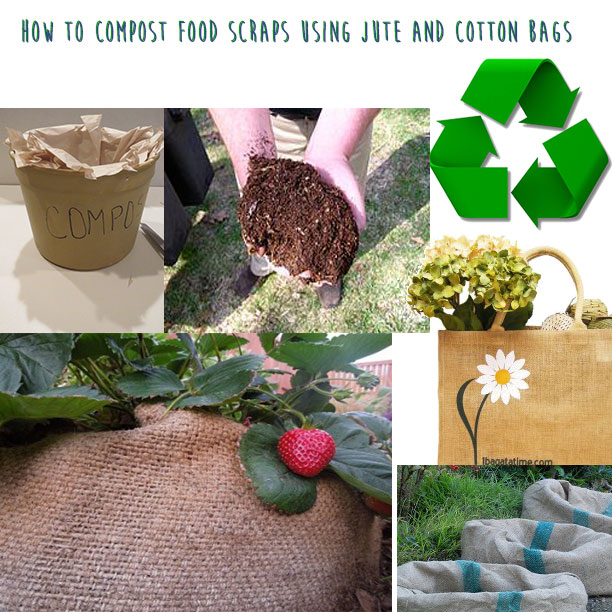How to compost food scraps using jute and cotton bags
How to compost food scraps using jute and cotton bags
Nowadays, people are realizing how important it is to care for the environment and most of all, care for one's self. Polythene pollution has drastically disturbed our everyday life style. Our oceans are brimming with plastic garbage that is harming the marine life and birds, our land fill dumps are overflowing with these bags that take hundreds and hundreds of years to decompose. Food waste, as EPA says contributes 13% of the total trash nationally. It has been estimated that about one-half of all food that is produced or consumed in the U.S. is discarded. A typical American household throws away 474 pound of food waste every year due to spoilage and overproduction/surplus.
How to create a Food Compost
Many people who have an in-sink garbage disposal do not need to create their own food compost. Those without the in-sink garbage disposal can try the following steps to create sustainable food compost.
- Buy a regular 7 to 5 gallon of plastic bucket from the hardware store. Put an old cotton sheet (you can cut an old ecofriendly cotton bag to a sheet) at the base of the bucket.
- Gather your food scraps and pour into the bucket
- Put mulch, leaves on top of the food scraps. Put an un-laminated jute/burlap bag on top of it. Burlap fabric is totally biodegradable and returns the entire valuable nutrient to the soil.
- All the above steps will prevent any unwanted flies, gnats, rodents and other vermin to come near the compost pile. Another method of easy composting is adding fallen leaves to the chopped vegetables and place the mix on a garden bed. Cover with burlap fabric. Your compost pile is ready for summer.
Compostable food items are Food scraps such as all your vegetable and fruit wastes, (including rinds and cores) Old bread, donuts, cookies, pizza crust, and anything made out of flour! Grains (cooked or uncooked) rice, barley etc., Coffee grounds, tea bags, filters, Fruit or vegetable pulp, old spices, outdated boxed foods from the pantry, egg shells, corn cobs and husks.
Non compostable food items are meat or meat waste, such as bones, fat, skin, etc., fish or fish waste, dairy products, like cheese, butter, yogurt, cream cheese, sour cream, etc. These foods can imbalance the nutrient-rich structure of the soil once they decompose. They attract rodents and maggots.
Composting food waste is the most sustainable way for managing organic waste. Food can return the valuable nutrient back into the soil. Upon composting, they become a non chemical fertilizer with no methane byproducts. On the other hand, the same food when trashed into landfill, they fail to produce valuable nutrients, but they only produce methane, a potently dangerous greenhouse gas.
